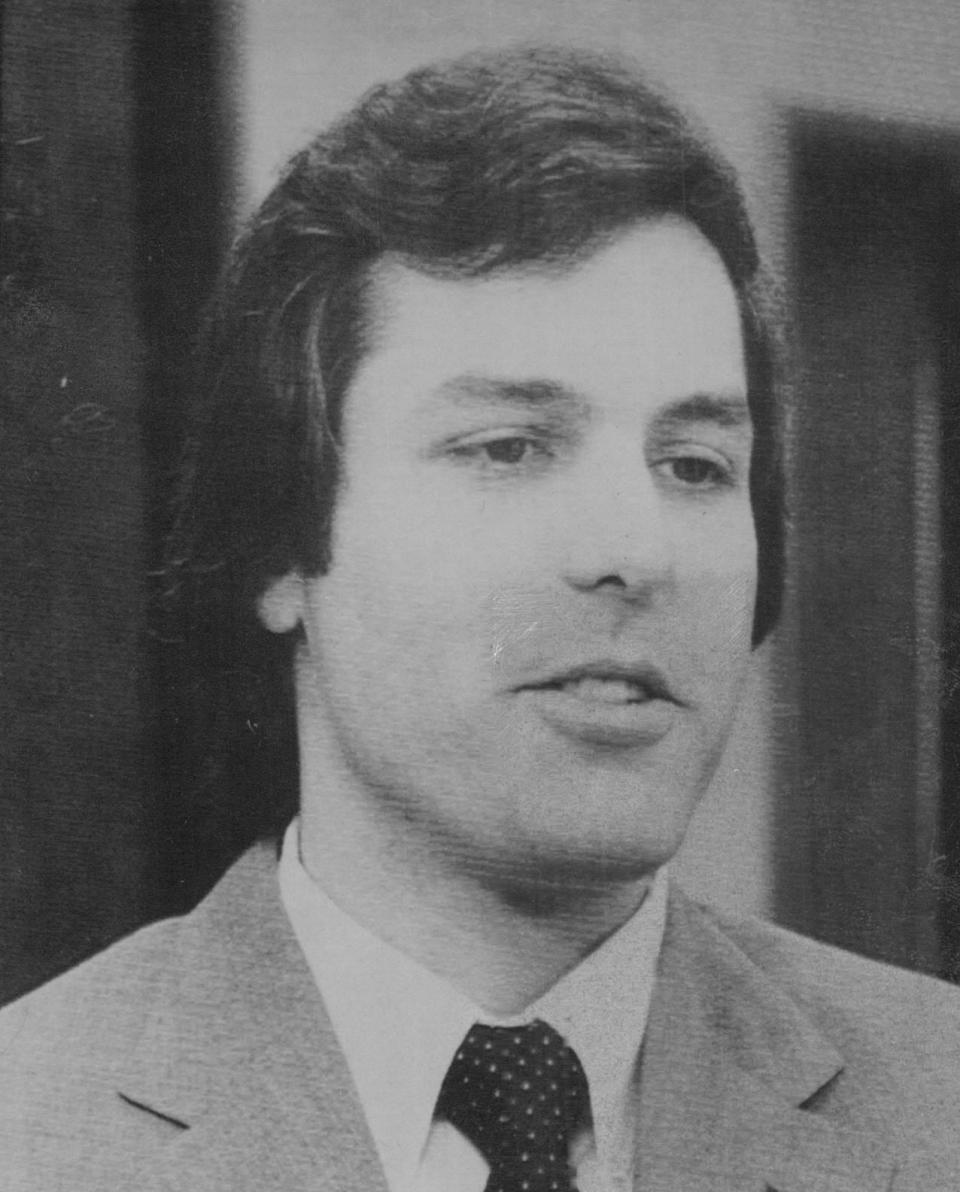My letters with killer-rapist Ed Laraby: 'I am what psychiatrists call a sociopath'
Maybe it's time to consider a career change when a sociopathic killer calls your reporting "fake news."
OK, Ed Laraby did not really use the words "fake news" in our exchange of letters from 2012 until his death in 2014. That terminology — often used to refute accurate reporting that does not match one's worldview — had yet to blossom in the terrain of political solipsism.
"I thought you people were more professional," Laraby wrote me from prison in 2012.
Those letters came to mind last week when Laraby, who died from ALS (Lou Gehrig's disease), found his way into the news almost six years after his death in prison.
Lawyers for James Krauseneck Jr., who is now accused of killing his wife, Cathy, with an ax in 1982, say that Laraby may be the real killer.
More on that momentarily. But, first, a return to my letters with Laraby.
'I am what psychiatrists call a sociopath'
What did I do to incur the wrath of Ed Laraby, who before his death admitted to the strangulation of Greece music teacher Stephanie Kupchynsky in 1991? I apparently implied in a letter to him that the motivation of his confessions was a conscience.
How dare I.
"I am what psychiatrists call a sociopath," Laraby wrote me. "I can assure you for better or worst (sic) that I am not burdened by morality, ethics or remorse, and I certainly do not possess a conscience that needs to be cleansed."
My bad.
The letter exchange began with one from Laraby in which he claimed he had committed a dozen homicides. While this may sound unusual, I receive many letters from prison and have to be somewhat selective in what I decide to pursue.

So, in response, I asked him for some proof. He did not bite, and accused me of manipulation. But he did want to set the record straight: One, he had no conscience. Two, any claims that police had been expert sleuths in solving the Kupchynsky homicide should be discounted. He confessed because he wanted something in return; he wanted to die in a hospital and not a prison.
Laraby, a violent sexual predator, had long been a suspect in the murder of Kupchynsky, whose remains were not found for seven years. When he died, he was serving two life sentences for a rash of sex crimes and an assault; he attempted to kill a corrections officer in prison.
Before his death, Laraby apparently gave police statements saying that he committed other crimes, including the homicide of Cathy Krauseneck, who was killed by a single ax blow to the head. James Krauseneck was charged last year; authorities say they have new evidence linking him to the homicide.
Prosecutors say that Laraby's confession to the strangulation of Kupchynsky was detailed and reliable. He had been a maintenance man in her apartment complex and apparently marked her as a suitable victim, just as he did other women whom he tracked like prey and viciously assaulted through the years.
The statement about Krauseneck's killing seemed to be more a ploy for better treatment than a true confession, authorities suspect. Laraby died weeks after the alleged confession about Krauseneck.

'I certainly do not possess a conscience that needs to be cleansed'
Laraby and I exchanged several letters, and he would never provide any more information to me about unsolved crimes. His aim was clear, he said: He wanted to die in a hospital or care facility of some sort, as long as either was not on prison grounds.
"When I learned that I was going to die I initiated contact offering cooperation for of (sic) value," Laraby wrote me.
My own admission here: I have written of these letters before, and am now drawing from those past articles. I don't know whether I still have the letters. I have a number of boxes I packed up after our move from the former Democrat and Chronicle home on Exchange Boulevard to our current East Main Street location.
Soon, I'll rummage through the boxes and see whether I can unearth the letters. I may have tossed them out, thinking they would be of no further use. (I did keep my letters from "Hillside Strangler" Kenneth Bianchi, who also had a beef with my reporting. I sense a trend.)
If I find the letters and see anything of interest beyond what I've included here, I'll write again. I'll leave it up to you to decide whether to believe what I write.
Ed Laraby, after all, had his doubts.

Return of 'Law and Disorder'
This column marks the return of a column/blog/musing series I did some years ago called "Law and Disorder." I have missed the ability to tell stories like this, and straight news reporting does not always provide the outlet. "Law and Disorder" is now back, and it will be occasional. Is that once a week, biweekly; I don't know.
But there will be more. Thanks for reading.
Contact Gary Craig at gcraig@gannett.com or at 585-258-2479. Follow him on Twitter at gcraig1. This coverage is only possible with support from readers. Sign up today for a digital subscription.
This article originally appeared on Rochester Democrat and Chronicle: Brighton ax murder: Prison letters from killer Ed Laraby

